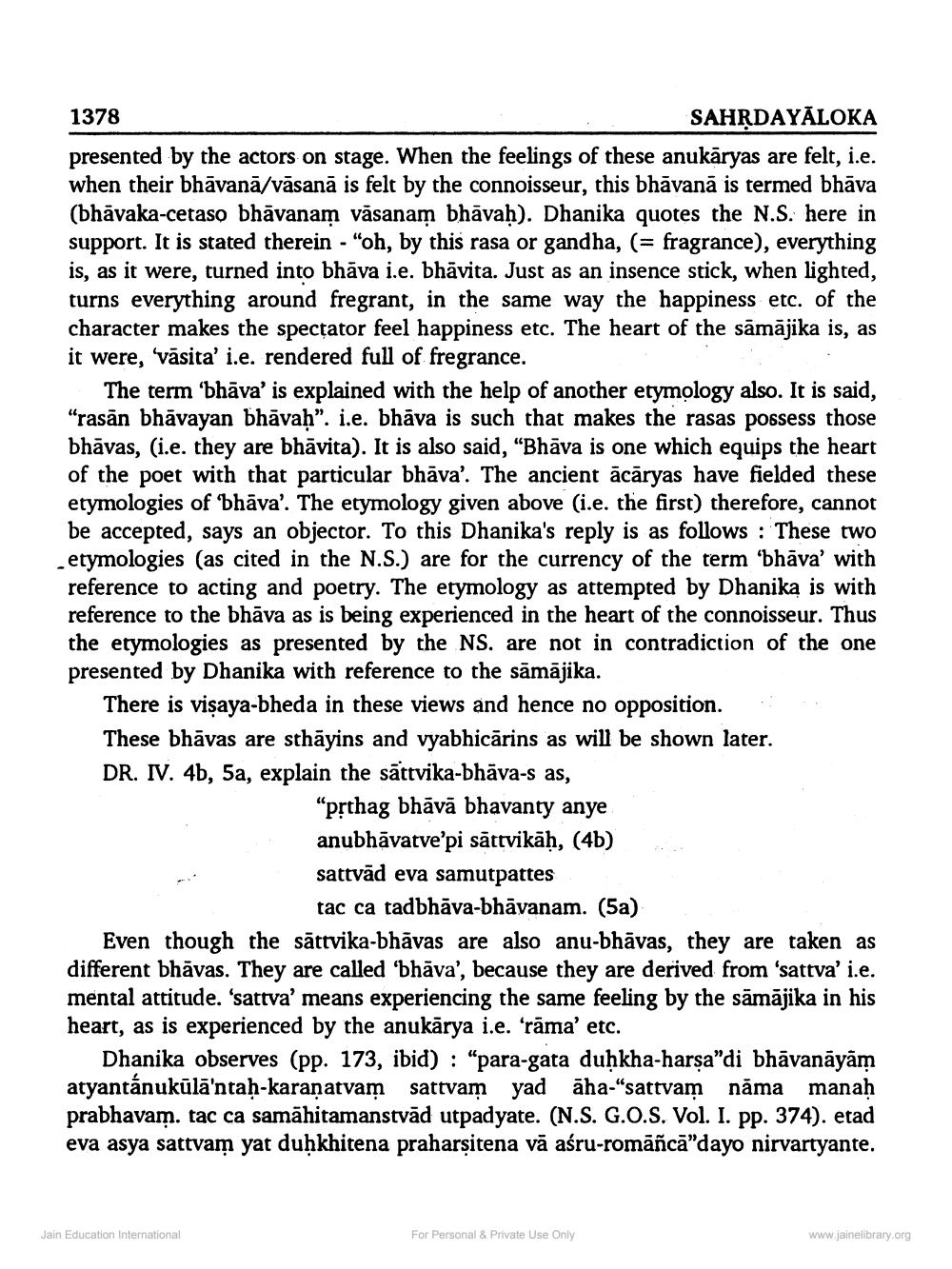________________
1378
SAHRDAYĀLOKA presented by the actors on stage. When the feelings of these anukāryas are felt, i.e. when their bhāvanā/vāsanā is felt by the connoisseur, this bhāvanā is termed bhāva (bhāvaka-cetaso bhāvanam vāsanam bhāvah). Dhanika quotes the N.S. here in support. It is stated therein - "oh, by this rasa or gandha, (= fragrance), everything is, as it were, turned into bhāva i.e. bhävita. Just as an insence stick, when lighted, turns everything around fregrant, in the same way the happiness etc. of the character makes the spectator feel happiness etc. The heart of the sāmājika is, as it were, 'vāsita' i.e. rendered full of fregrance.
The term 'bhāva' is explained with the help of another etymology also. It is said,
an bhāvayan bhāvah". i.e. bhāva is such that makes the rasas possess those bhāvas, (i.e. they are bhāvita). It is also said, “Bhāva is one which equips the heart of the poet with that particular bhāva'. The ancient ācāryas have fielded these etymologies of 'bhāva'. The etymology given above (i.e. the first) therefore, cannot be accepted, says an objector. To this Dhanika's reply is as follows : These two etymologies (as cited in the N.S.) are for the currency of the term 'bhāva' with reference to acting and poetry. The etymology as attempted by Dhanika is with reference to the bhāva as is being experienced in the heart of the connoisseur. Thus the etymologies as presented by the NS. are not in contradiction of the one presented by Dhanika with reference to the sāmājika.
There is visaya-bheda in these views and hence no opposition. These bhāvas are sthāyins and vyabhicārins as will be shown later. DR. IV. 4b, 5a, explain the sāttvika-bhāva-s as,
"prthag bhāvā bhavanty anye anubhāvatve’pi sāttvikāḥ, (4b) sattvād eva samutpattes
tac ca tadbhāva-bhāvanam. (5a) Even though the sättvika-bhāvas are also anu-bhāvas, they are taken as different bhāvas. They are called 'bhāva', because they are derived from 'sattva' i.e. mental attitude. 'sattva' means experiencing the same feeling by the sāmājika in his heart, as is experienced by the anukārya i.e. 'rāma' etc.
Dhanika observes (pp. 173, ibid) : “para-gata duḥkha-harsa"di bhāvanāyām atyantánukūlā'ntah-karanatvam sattvam yad āha-"sattvam nāma manah prabhavam. tac ca samāhitamanstvād utpadyate. (N.S. G.O.S. Vol. I. pp. 374). etad eva asya sattvam yat duḥkhitena praharşitena vā aśru-romāñcā"dayo nirvartyante.
Jain Education International
For Personal & Private Use Only
www.jainelibrary.org




